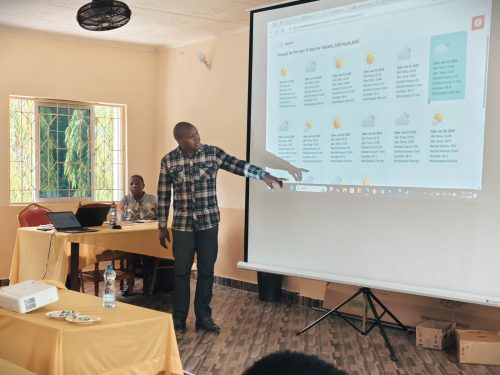Kenya to test 77,000 soil samples in push for food security
By Steve Ireri, January 20, 2025
The Kenya Agricultural and Livestock Research Organization (KALRO), in partnership with county governments, is spearheading a groundbreaking initiative to collect and test over 77,000 soil samples across 45 counties.
This ambitious project, funded by the World Bank, seeks to develop digital soil fertility maps to transform the country’s agricultural landscape and boost food production.
Speaking to a local TV station on Sunday, January 20, 2025, Dr. Daniel Gikaara, Deputy Director of KALRO’s Horticulture Research Institute, revealed that the project, dubbed the National Agricultural Value Chain Development Project (NAVCDP), began in 2024 and will run until 2027.
Dr. Gikaara explained that the initiative will use advanced technology to analyse soil attributes such as pH levels, enabling precise policy-making and tailored recommendations for farmers nationwide.
Agripreneurs
KALRO has recruited and trained agripreneurs in every ward to spearhead the collection of soil samples and assist farmers, in what the director said is a major step towards decentralizing agricultural advice.
These agripreneurs will use mobile applications like Maps.Me and KOBO Collect to navigate specific sampling points and input critical data, ensuring accurate mapping of soil conditions.

“The agripreneurs will advise farmers on suitable crops and necessary inputs based on soil test results,” noted Dr. Gikaara during a training session held at Murang’a University. “This initiative will empower farmers to make informed decisions and improve their yields sustainably.”
Cutting-edge technology
A key component of the project is the acquisition of 12 Mid Infra-Red (MIR) machines, which will be strategically distributed across KALRO centres nationwide.
Dr. Gikaara emphasized the transformative impact of these machines, which will not only speed up soil testing but also reduce costs significantly.
“Currently, it takes about two weeks to get results from labs. With the new machines, this waiting time will drop to just two to four days,” he said. The MIR machines will analyze soil attributes and provide precise recommendations on crop suitability, offering a cost-effective solution for farmers.
Soil mapping
Dr. Gikaara also highlighted the development of a National Soil Spectral Library, which will be created from the nearly 77,000 soil samples. This library will standardize soil data across the country, eliminating inconsistencies seen in past soil mapping efforts that relied on outdated near-infrared technology.
Farmers will also benefit from digital registration, allowing them to receive their soil test results directly via SMS. This innovation ensures farmers have immediate access to actionable information to enhance their farming practices.
About digital soil fertility maps
Digital soil fertility maps are innovative tools that leverage geospatial technology and advanced soil testing methods to provide detailed, data-driven insights into soil health and nutrient composition.
These maps present a visual representation of various soil attributes, including pH, nutrient levels, organic matter content, and other chemical and physical properties, enabling targeted agricultural interventions to optimize crop yields and maintain soil health.